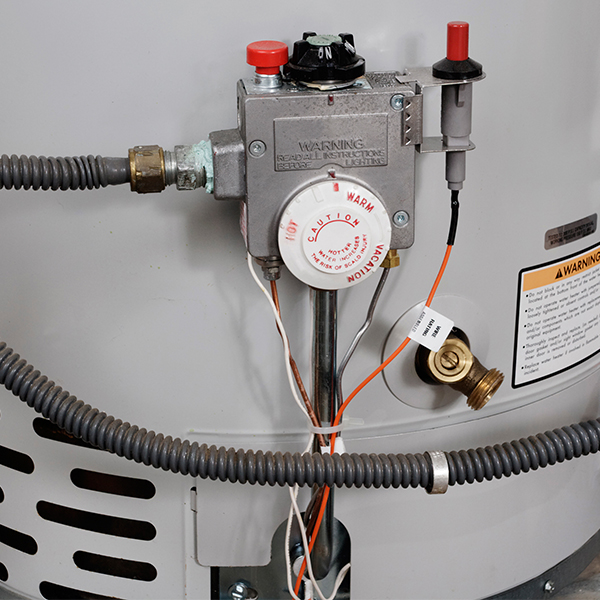
How to Tackle Water Heater Flooding
On a chilly winter morning, few things are worse than being greeted by an unexpected, cold shower…unless of course, that cold shower is accompanied by the discovery of a few inches of standing water filling your basement.
Just like any appliance in your home, water heaters may work great without any issues for years and then suddenly, without warning, a complete failure occurs and you’ve got a sizeable flood in your home.
The average life of a water heater is about 10 years. Even before the 10-year mark hits, it’s important to check your water heater from time to time for leaks, as these leaks if they go unchecked can quickly turn into more costly repairs and lead to damage in your home. As a water heater gets older, the more likely it is that a failure will occur, so it’s wise to replace your water heater—even if it seems to still be in working order—if the appliance is more than 10 years old. The cost of replacing a water heater in most instances far outweighs the chance of an old system failing and creating an even bigger fiasco with flood-damaged floors, drywall, and furniture.
Even when precautionary steps are taken, things still happen. So, what do you do if the worst happens and your basement-dwelling water heater unleashes a flood into the lower level of your home?
First, it’s critical to stop the flow of water by shutting down the flow of water through the water heater. Turn the handle on the water valve clockwise until it stops. If the water heater’s valve appears to be broken or water still seems to be running, you may also need to turn off the main water valve for the entire house.
Next, turn off the gas or electricity, depending on the type of water heater. For an electric water heater, switch the circuit breaker to the off position and for a gas-powered water heater twist the dial on top of the thermostat from the on to the off position.
IMPORTANT! Water and electricity are a dangerous combination. If your water heater is partially submerged in water or water is near other electrical appliances or wall sockets, there is a risk of electric shock through the charged water. It is essential to turn off the breakers for your basement’s power before touching the water or water heater.
Once the power and water have both been turned off it’s time to address all that water. Not only can standing water ruin flooring, carpet, furniture, and drywall, but mold can begin to grow in as little as 24 hours.
Water damage restoration specialists, LIKE WATER EXTRACTION EXPERTS, have the equipment and expertise necessary to quickly respond to emergency flooding situations and not only remove the water, but dry and dehumidify the area to prevent the growth of mold and restore the structural integrity of your floors and walls.
Once the immediate concern of water is dealt with, it’s time to go about replacing your no-longer-faithful water heater. Many people want to know if it’s possible to simply repair their water heater, and the short answer is no.
Whether your water heater has been affected by floodwater created from its own leak or from another source of floodwater, the Air-Conditioning, Heating, and Refrigeration Institute (AHRI) strongly recommend that any flood-damaged heating and cooling equipment be replaced. In a gas-powered water heater, the valves and controls are likely to corrode, and in an electric unit, the thermostat and controls are likely to corrode. In both types of units, the insulation surrounding the water heater will have become contaminated and is nearly impossible to disinfect and can also lead to corrosion of the tank from the outside.
Even if a water heater seems operative at first, it will deteriorate over time and can become a serious hazard a week, a month, or a year later, resulting in a fire, explosion in the case of gas controls, or shock in the case of an electric unit. Because so many things can go wrong as a result of floodwater, it is usually cheaper and always safer to replace an affected water heater, rather than attempt to repair it. A licensed plumber or company that services water heaters will be able to help you remove and replace your old water heater.
Give us a call!
Hiring a professional water extraction team like Water Extraction Experts can give you peace of mind that your home is in good hands. We work directly with your insurance!
We are equipped to guide you through the process of protecting your property and getting you back to your life as soon as possible.
EMERGENCY 24/7 WATER DAMAGE SERVICES
CALL: 970-581-4498 Northern Colorado
CALL: 307-220-5900 Southeastern Wyoming
CALL: 505-250-6500 Albuquerque and Santa Fe, New Mexico Areas
